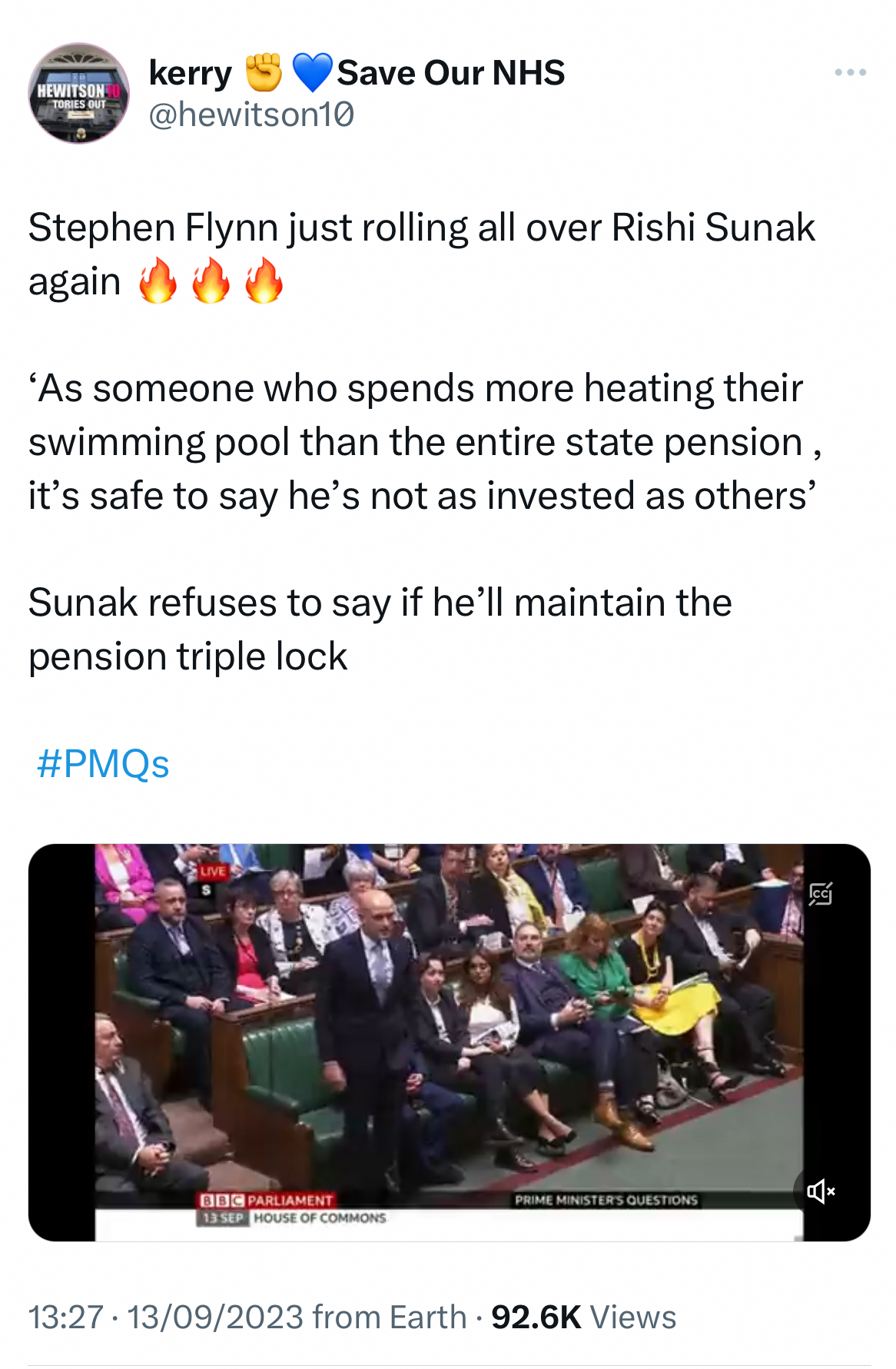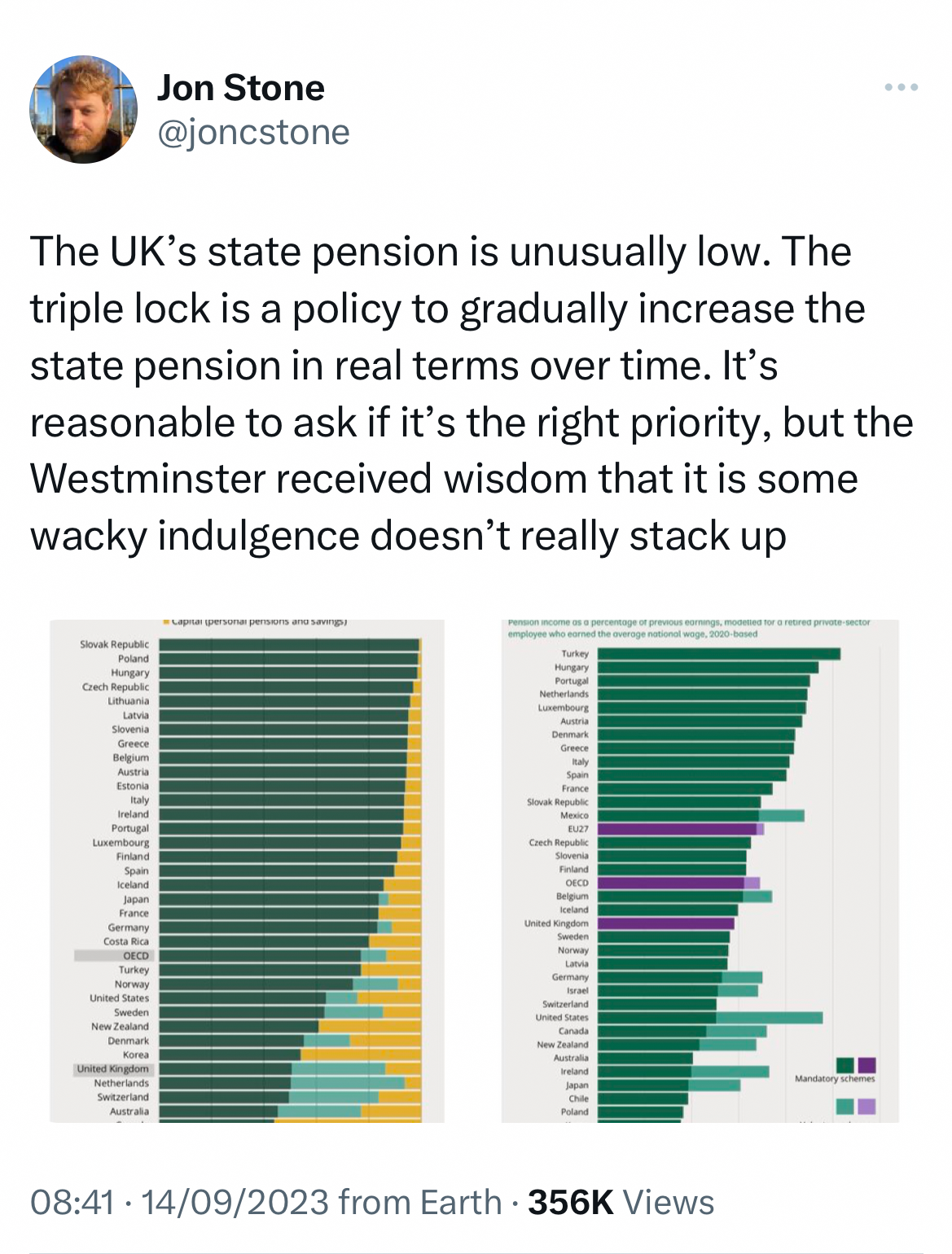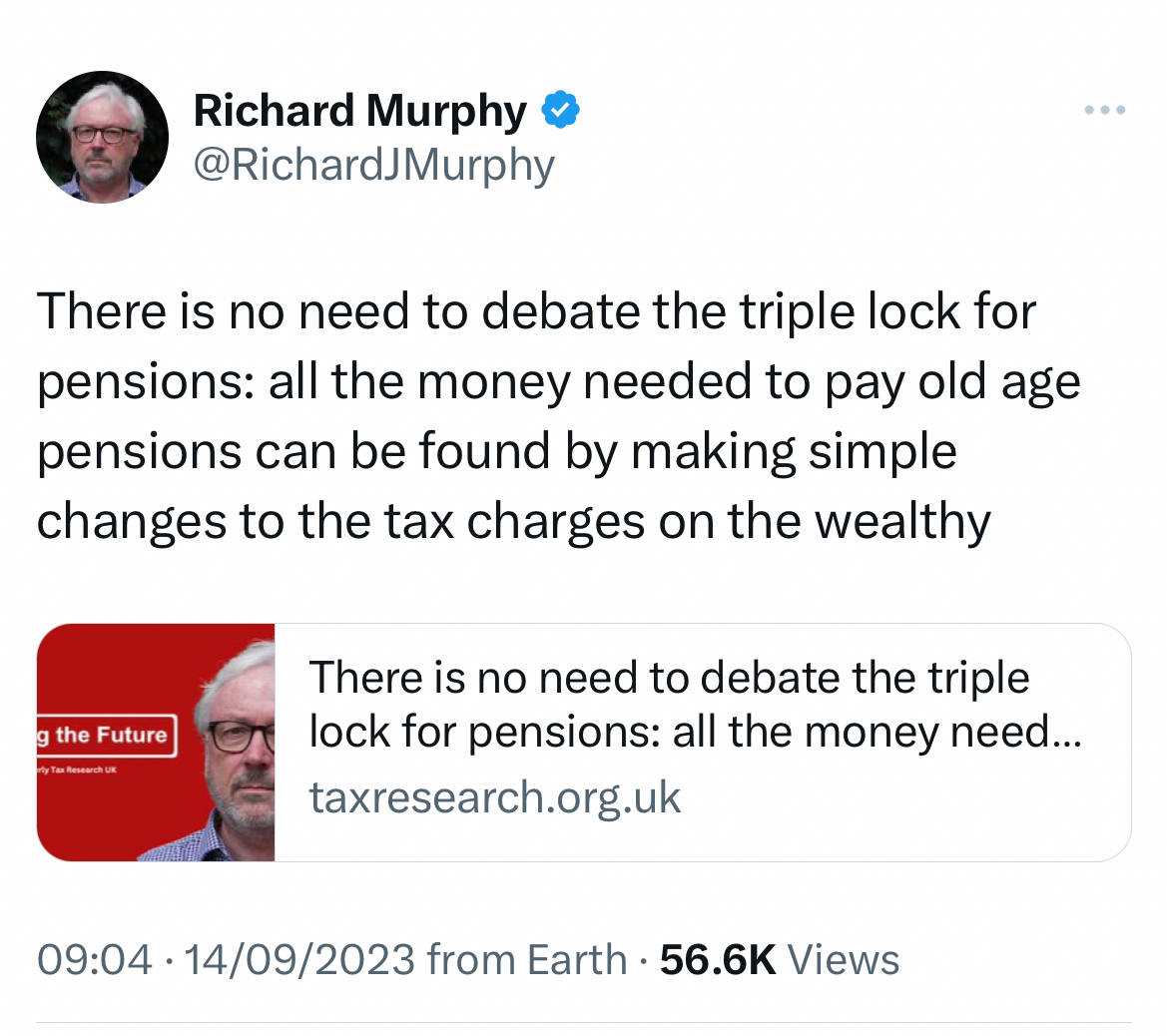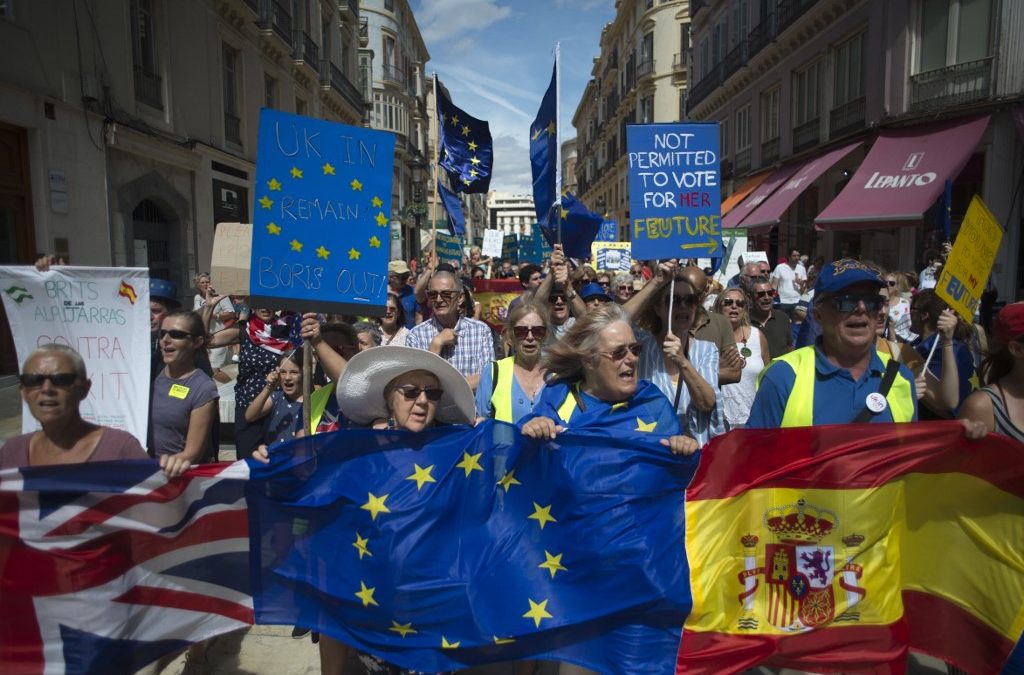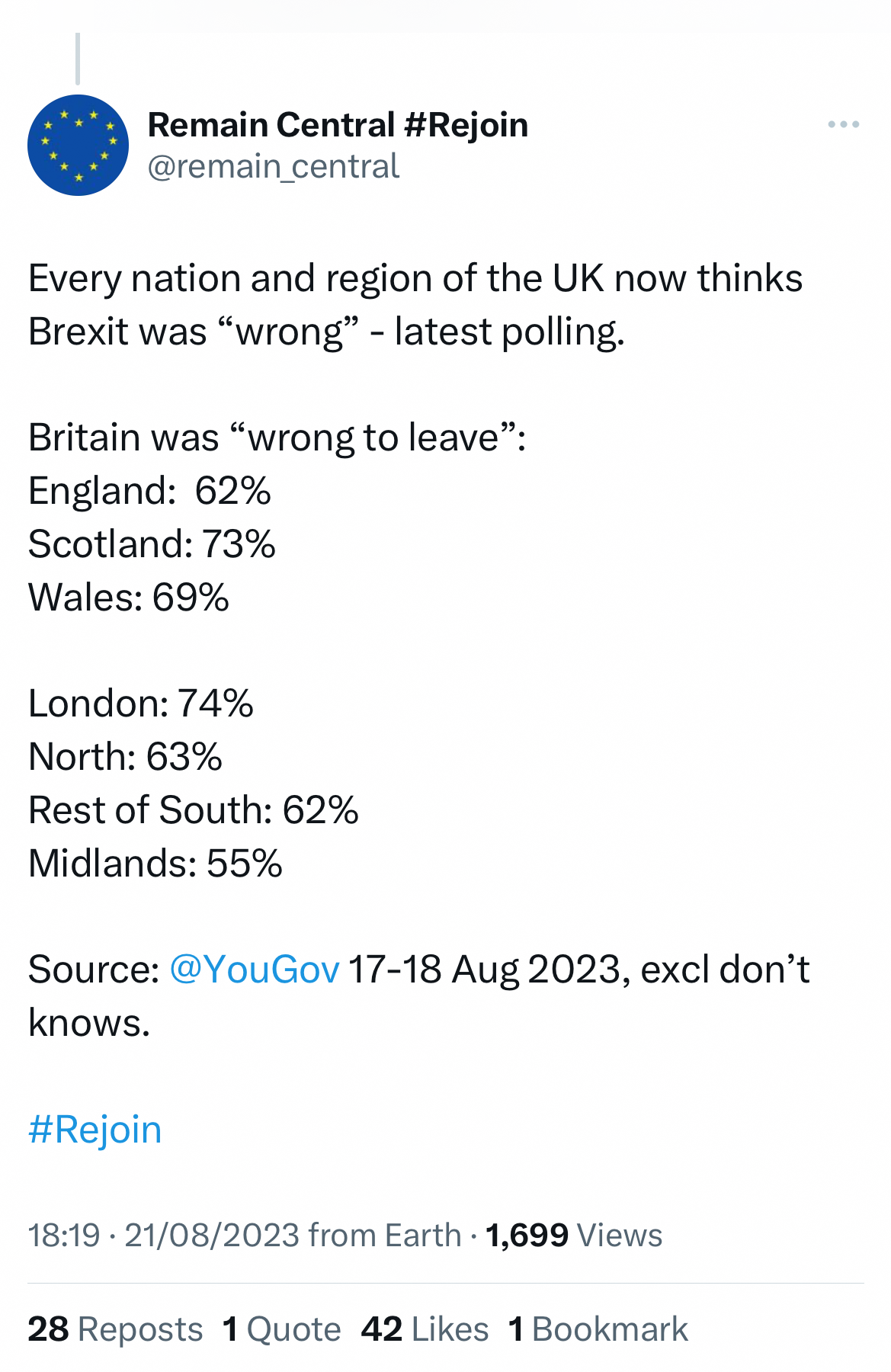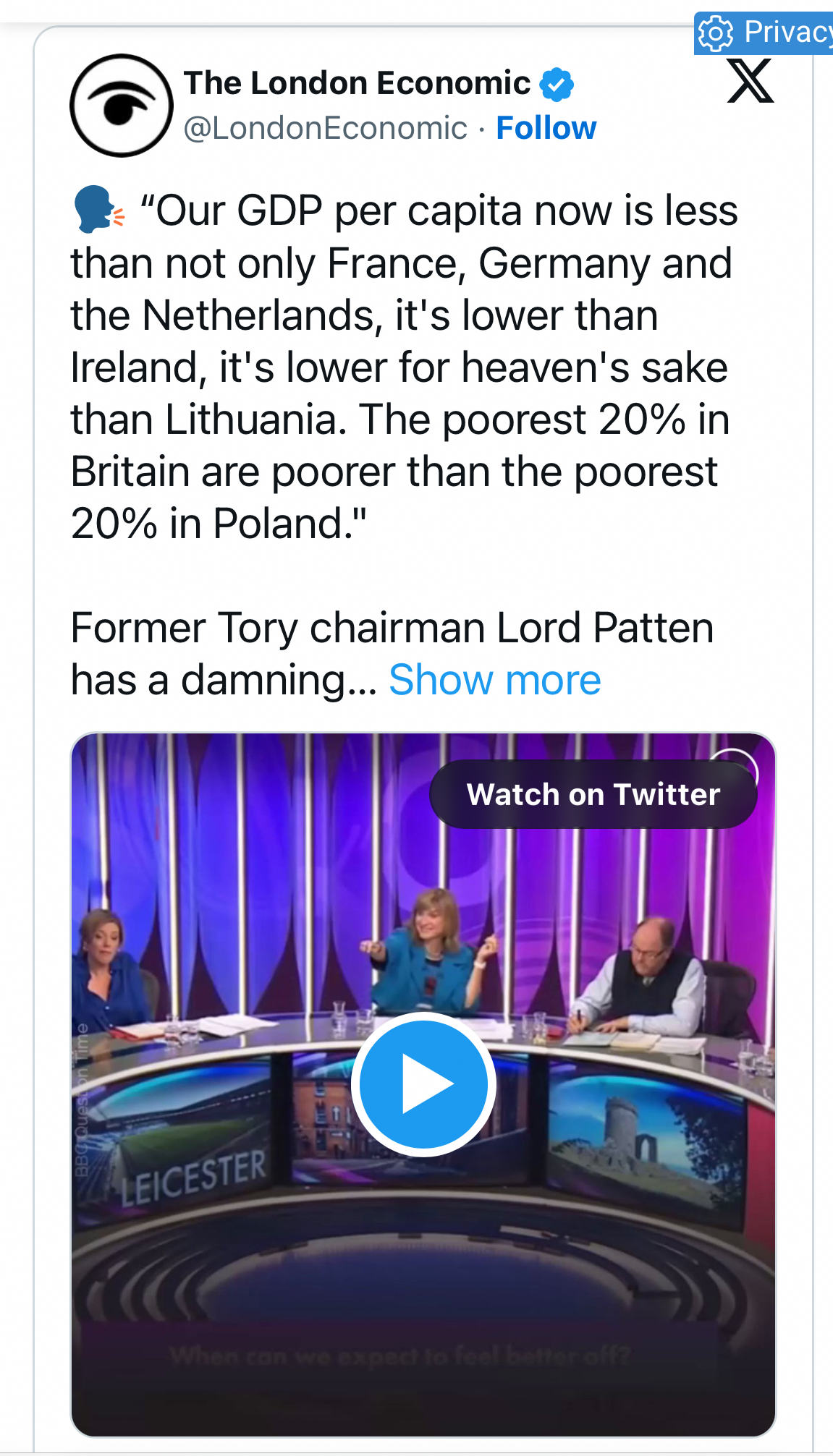
Triple lock under threat from the Conservatives, again
Sunak declines to confirm whether or not the triple lock on pensions will be retained in the Conservative manifesto, writes Bremain Chair Sue Wilson MBE for Yorkshire Bylines.
At PMQs this week, Prime Minister Rishi Sunak stated he was “committed” to the triple lock on pensions. That is until he was challenged, when he declined to commit to the lock’s inclusion in the next Conservative manifesto. As SNP leader Stephen Flynn pointed out, “as someone who spends more heating their swimming pool than the entire state pension, it’s safe to say he’s not as invested as others”.
https://x.com/hewitson10/status/1701920440363442488?s=20
The triple lock was first introduced by the Conservative/LibDem coalition in 2010 to ensure pensions would increase annually by either inflation, average earnings or 2.5% – whichever is the highest. Inflation this year is currently expected to be around 7%, based on the annual rate in September, to be released next month. However, earnings could be even higher thanks to one-off bonus payments to public sector staff, taking the forthcoming annual pension increase to over 8%.
Earlier threats and precedent
Treasury officials are currently said to be discussing a one-off break from the triple lock that could save £1bn. Except it wouldn’t be a one-off. The precedent for downgrading the triple lock to a double lock – at least on a temporary basis – has already been set.
The lock was suspended for the year 2022-2023 following a rise in wage inflation due to the pandemic. The lock also came under threat when Liz Truss was temporarily prime minister, as both Truss and Chancellor Jeremy Hunt threatened to abandon the triple lock.
What’s different now is that the policy has never been challenged so close to an election. It is likely to prove a hot topic at the forthcoming Conservative Party conference, and is already causing division within the party
Conservative division
Sunak is coming under increasing pressure from some in his party to protect the triple lock. The policy has been described by some party members as “sacrosanct”, especially as older voters are more likely to vote Conservative, and to turn up at the ballot box on election day. Others, however, either claim the policy is unfair to younger people and/or are concerned at the potential cost.
An unnamed former treasury minister told the Guardian, “Everyone agrees it’s massively unaffordable now. But the timing of this is questionable”. Former work and pensions secretary, David Gauke, said “tough choices” would have to be made, while the current work and pensions secretary, Mel Stride, suggested the policy was not sustainable in the long term. Former Conservative Party leader, William Hague, described the policy as a “runaway train” that was putting “insurmountable pressure” on the government to increase the minimum age of retirement.
In favour of the policy, the chair of the cross-party parliamentary group on pensions, Nigel Mills, said, “No one ever wants to talk about what will be in the future manifesto, but we should be clear that the state pension should keep pace with inflation and earnings”. He said it would be “politically impossible” to remove the triple lock.
https://x.com/joncstone/status/1702210856866476366?s=20
8% of not very much
Regardless of the perceived or otherwise fairness of the triple lock for pensioners, even a rise of 8% is very little when the UK pension is so pitifully small to begin with. British pensioners, on one of the lowest pensions in the industrialised world, are in desperate need of a reasonable increase, especially when the cost of living is rising so sharply.
Of course, pensioners are not alone in receiving low incomes, as increasing poverty levels in Britain clearly demonstrate. Meanwhile, and especially under this government, the rich get richer, the extremely rich get extremely richer.
Of course, it makes good sense to have meaningful political debates, both within the government and with opposition parties, on how our taxes are spent. But removing the triple lock – as with other policies that affect those on lower incomes – is not the answer. The wealthy need to be paying more, and most especially, those that avoid paying tax in the UK altogether need to contribute.
https://x.com/RichardJMurphy/status/1702216676094157003?s=20
The proposed saving is but a drop in the ocean when compared with the cost of this government’s policies and the obscene waste of taxpayer money, not least during the pandemic. Whether it’s the exorbitant and unnecessary cost of Conservative policies – not least on failed immigration policies – or the writing off of monies lost through faulty PPE and dodgy VIP contracts during Covid, this government have proven categorically that our money is not safe in their hands.
The Tories like to regard themselves as the party of fiscal responsibility. The last 13 years have proven categorically that the government cannot be trusted to spend our money wisely, or in the interests of all of society. Not only that, they appear to have learned nothing about what the country, and especially their own core supporters, want and need.
So, go ahead, Sunak and co., threaten the triple lock all you want. This close to a general election, it’s just another nail in your coffin.

